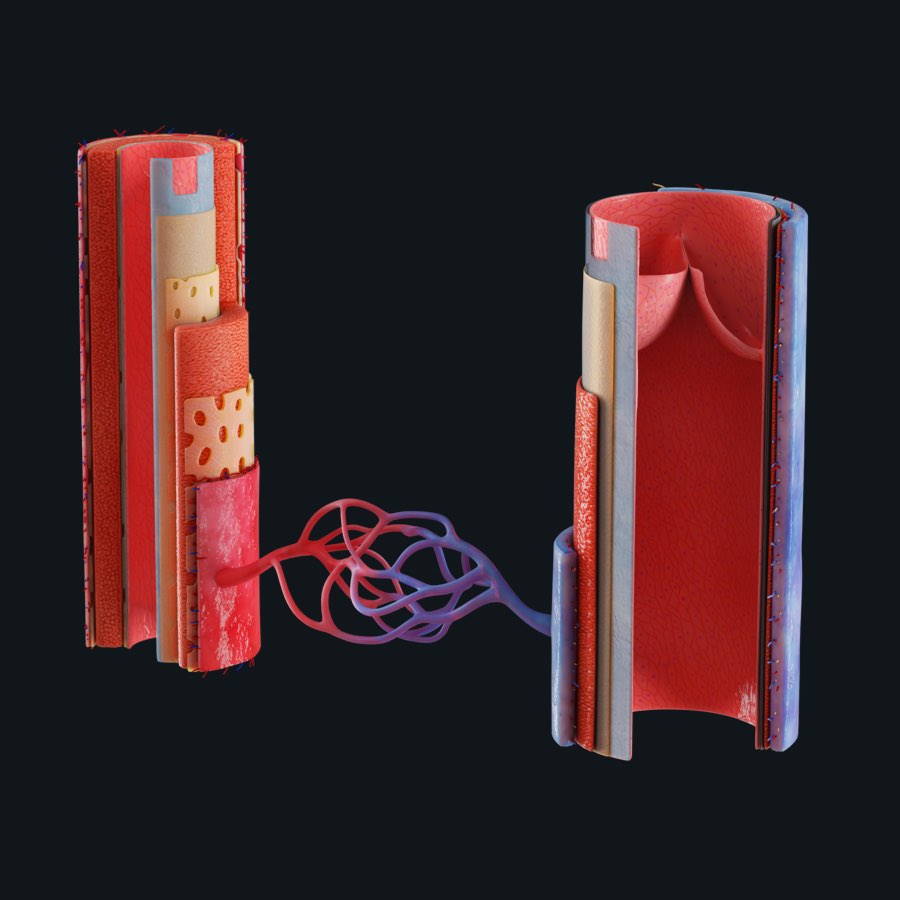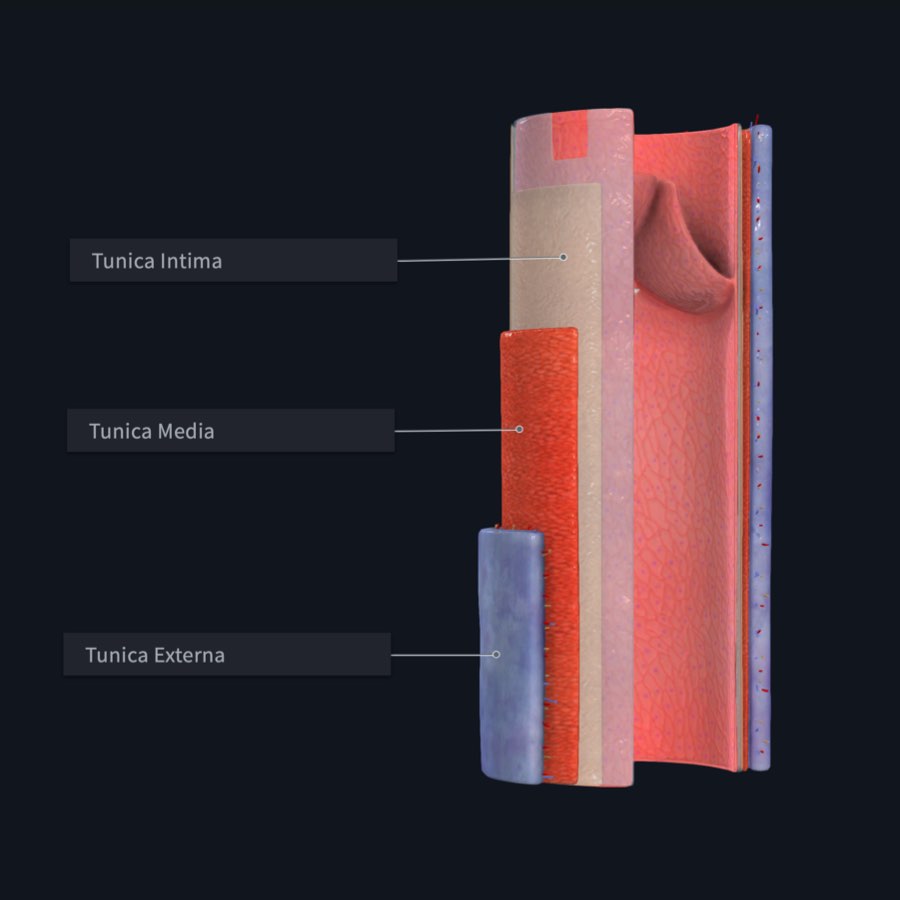
Although some blood vessels are relatively small, they form a huge network. If all the vessels belonging to a single person were laid out in a line, they would actually span 60,000 miles in length. That’s long enough to circle the circumference of the globe more than twice.
Blood vessels belong to the cardiovascular system, functioning to transport blood to and from the heart and the rest of the body.
The two most important vessels are the arteries and the veins. They are connected to a capillary network by arterioles and venules, respectively. The capillaries then allow the exchange of gases, hormones, nutrients and waste products.
All arteries (except the pulmonary artery) carry fresh oxygenated blood away from the heart to tissues throughout the body, while all veins (except the pulmonary vein) carry deoxygenated blood from the tissues back to the heart.
Structurally, both are quite similar, and their walls are made up of 3 layers:
- Tunica intima (innermost layer). This functions as a protective barrier between the blood in the lumen and the vessel walls.
- Tunica media (middle layer). Mainly made up of smooth muscle, this layer can contract and relax, altering the diameter of the vessel lumen. Arteries generally have a thicker tunica media than veins and mainly rely on this muscle for their transport of blood.
- Tunica externa (outermost layer). This acts as an anchor and a protective layer, preventing any damage to the vessel wall.

Veins have a thinner tunica media, and are less flexible than arteries. They rely on unidirectional valves to promote the flow of blood in the right direction and prevent venous return.
Thanks to these vessels, the blood in your body is continuously flowing, distributing oxygen and removing CO2. Every day they carry almost 2,000 gallons of blood throughout the body.
I think we can all agree that these vessels really are the perfect highway network for life ?
The blood vessel is one of 14 detailed 3D microanatomy models in Complete Anatomy. Explore this, and many more today at www.3d4medical.com